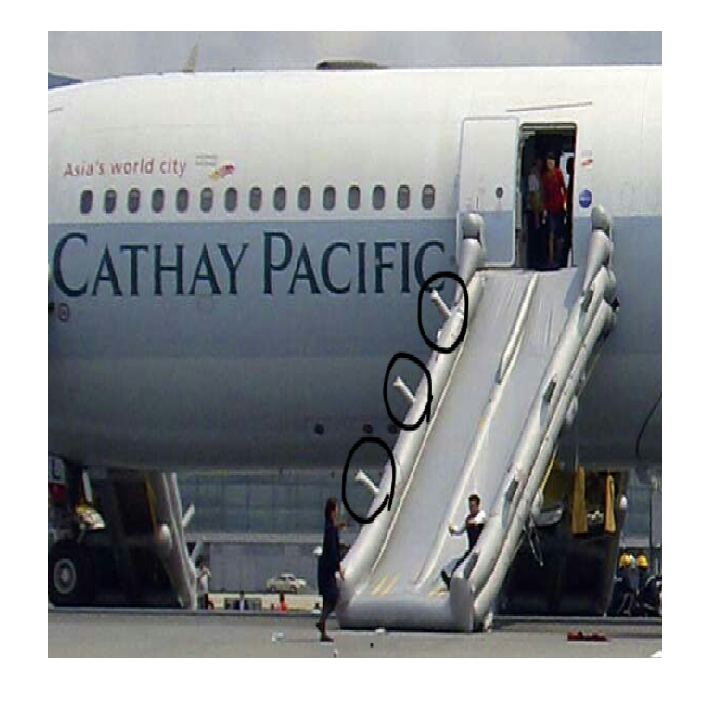Hone v Going Places Travel Ltd, [2001] EWCA Civ 947
Citation:Hone v Going Places Travel Ltd, [2001] EWCA Civ 947
Rule of thumb 1: If you are injured on holiday, can you sue the travel agent you booked it with? If 2 out of these 3 things are booked by the travel agent, accommodation, flights, transport, then yes, if only 1 of the 3 is booked, no.
Rule of thumb 2: If there is an error with the plane, and you have to go off the plane on the chutes, and you injure yourself, is that a claim? As a general rule, no, that is standard practice and that is not a claim (You would need to prove that there was a fault with how it was done – (a) steepness, (b) lack of advice/instruction, (c) lack of support at the bottom etc – to have any chance of making a claim).
Rule of thumb 3: Most claims against ‘travel agents’ are brought under ‘The Package Travel, Package Holidays and Package Tours Regulations 1992’, which were introduced into UK to comply with an EU directive. The Court in this case held that a travel agent is considered a ‘package tour operator’, rather than just a ‘travel agent’, if they book 2 out of 3 parts of the holiday for a person – accommodation, flights, ancillary transport – and if they only book 1 of these 3 things with people having to organise the other 2 themselves they are just a ‘travel agent’ not subject to the 1992 regulations rather a ‘package tour operator’ subject to the regulations. Although a ‘package tour operator’ has ‘strict liability’ for other sub-contractors they use to provide a package holiday (plane, hotel, or taxi/mini bus businesses), it is still a ‘fault based system’ that applies under these regulations, meaning that it still has to be shown that the foreign law in the place where the injury took place – Spain, Greece, France etc - was breached. As obiter dicta examples of a pool never being cleaned or a driver of transport being incautious were provided as examples of when reasonable care would not have been shown. In this case no fault was proved.
Judgment:
The facts of this case were that during the package tour holiday flight there were complications during the flight part of the process and passengers had to get off the flight via the chutes. When Mr Hone was going the chute he reached the bottom and another one of the passengers clattered into his back and injured him. It was argued that the flight operators had used exactly the right process for evacuating people from the flight, but Mr Hone tried to argue that the 1992 Regulations gave ‘strict liability’ for all services, and that ‘absolute all practical measures’ defence could not apply to the method of getting people off the plane used by the commercial airline. The Court held that the 1992 Regulations made operators strictly liable for the taxis/buses etc, commercial airlines or hotel operators they used, not strictly liable for the standard of services, and that the normal standard of care applied to these other sub-contractors.
Ratio-decidendi:
‘The starting point must, in my view, be the contract which Mr Hone made with the defendants. Contracts for holidays are often made informally and it will often be necessary to imply a term as to the standard of performance since the requirements will not be set out in any detail... there would not be an absolute obligation, for example, to ensure that the holiday maker catches no infection while in the swimming pool. The obligation assumed will be that reasonable skill and care will be taken to ensure that the pool is free from infection. A similar term will be implied in relation to transportation... the implication will be that reasonable skill and care will be used in the rendering of the relevant service. There will thus be no improper performance of the air carriage unless there is an absence of reasonable skill and care in the provision of that service... he has to show that there has been improper performance... There is a clear contrast with the terms of the Warsaw Convention (the Warsaw conventions that apply to commercial airlines compared with the 1992 Package Tours Regulations). In that Convention, Article 17 imposes a liability for death or personal injury without any requirement of improper performance. Article 18 does the same for loss or damage to baggage and cargo, and Article 19 the same for delay to passengers, baggage and cargo. There are then specific provisions for exclusion or diminution of liability and for limitation. The 1992 Regulations could have adopted a similar scheme but, by the use of the term “improper performance”, it is patent that they have not done so. The fact that it is open to the travel agent (or other party to the contract) to incorporate the limitation provisions of any applicable international convention, if they wish to do so, cannot make any difference to this conclusion... It is significant that the terms of both the preamble and the body of the directive itself refer to improper performance and must, therefore, envisage that the standard if performance is to be derived from the contract and not from the terms of the directive itself... the retailer or the tour organiser will be responsible for the acts of others who provide the relevant services... For these reasons I would... dismiss Mr Hone’s appeal’, Longmore LJ

Warning: This is not professional legal advice. This is not professional legal education advice. Please obtain professional guidance before embarking on any legal course of action. This is just an interpretation of a Judgment by persons of legal insight & varying levels of legal specialism, experience & expertise. Please read the Judgment yourself and form your own interpretation of it with professional assistance.

